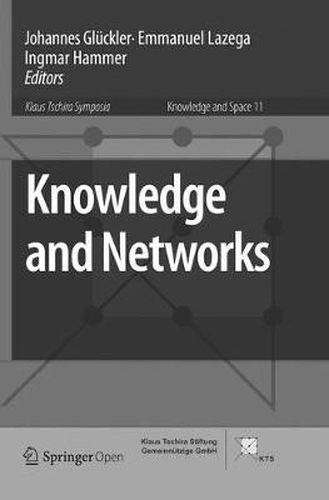Readings Newsletter
Become a Readings Member to make your shopping experience even easier.
Sign in or sign up for free!
You’re not far away from qualifying for FREE standard shipping within Australia
You’ve qualified for FREE standard shipping within Australia
The cart is loading…






This book discusses a core question in many fields of the social sciences, namely how to create, share and adopt new knowledge. It creates an original space for conversation between two lines of research that have developed largely in parallel for a long time: social network theory and the geography of knowledge. This book considers that relational thinking has become increasingly important for scholars to capture societal outcomes by studying social relations and networks, whereas the role of place, space and spatial scales has been somewhat neglected outside an emergent geography of knowledge.
The individual contributions help integrate network arguments of connectivity, geographical arguments of contiguity and contextuality into a more comprehensive understanding of the ways in which people and organizations are constrained by and make use of space and networks for learning and innovation. Experts in the fields of geography, sociology, economics, political science, psychology, management and organizational studies develop conceptual models and propose empirical research that illustrates the ways in which networks and geography play together in processes of innovation, learning, leadership, and power. This book is open access under a CC BY 4.0 license.
$9.00 standard shipping within Australia
FREE standard shipping within Australia for orders over $100.00
Express & International shipping calculated at checkout
This book discusses a core question in many fields of the social sciences, namely how to create, share and adopt new knowledge. It creates an original space for conversation between two lines of research that have developed largely in parallel for a long time: social network theory and the geography of knowledge. This book considers that relational thinking has become increasingly important for scholars to capture societal outcomes by studying social relations and networks, whereas the role of place, space and spatial scales has been somewhat neglected outside an emergent geography of knowledge.
The individual contributions help integrate network arguments of connectivity, geographical arguments of contiguity and contextuality into a more comprehensive understanding of the ways in which people and organizations are constrained by and make use of space and networks for learning and innovation. Experts in the fields of geography, sociology, economics, political science, psychology, management and organizational studies develop conceptual models and propose empirical research that illustrates the ways in which networks and geography play together in processes of innovation, learning, leadership, and power. This book is open access under a CC BY 4.0 license.